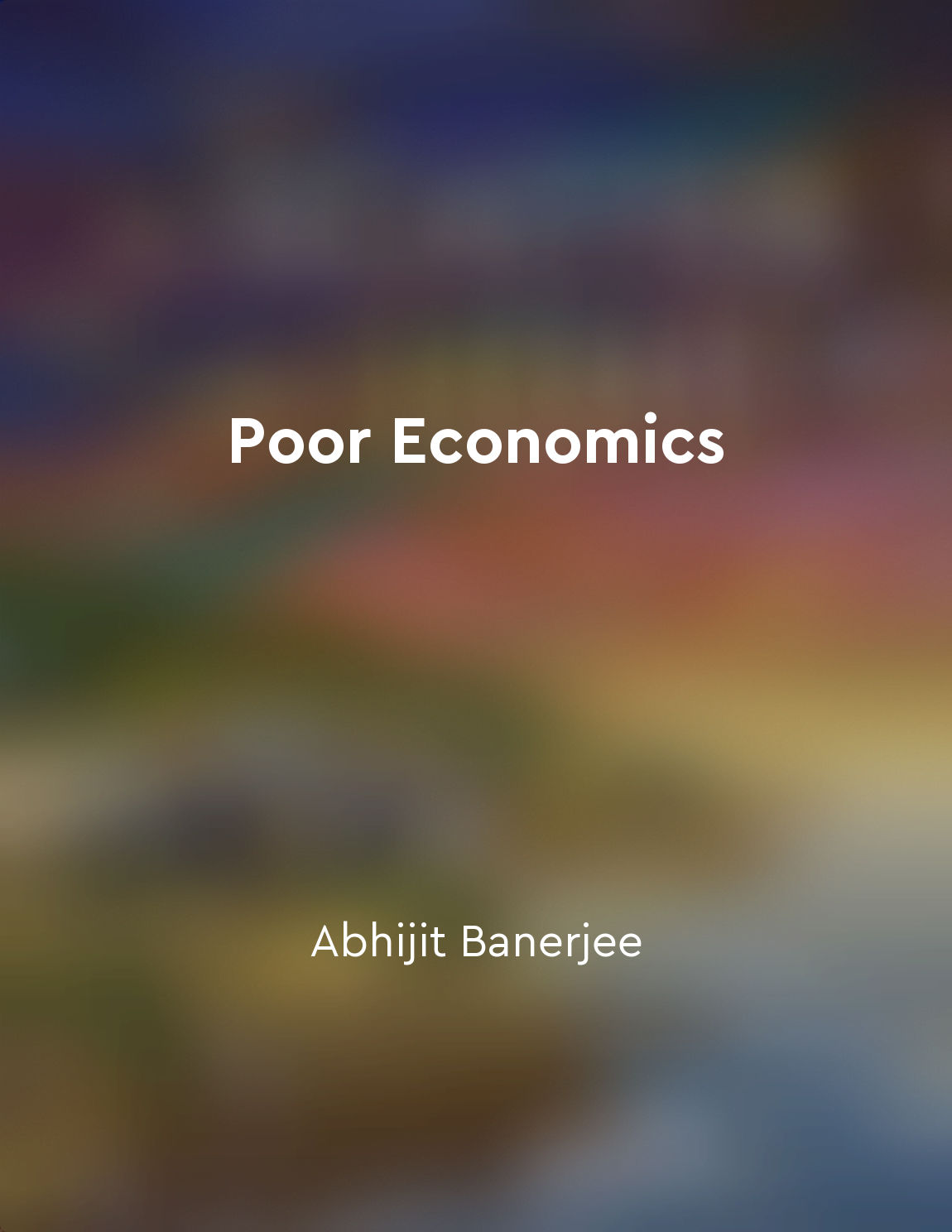Poverty can lead to intergenerational disadvantage from "summary" of The Economics of Poverty and Discrimination by Bradley R. Schiller
One of the key insights in understanding the persistence of poverty is the idea that poverty can create a cycle of intergenerational disadvantage. This means that children born into poverty are more likely to remain in poverty as they grow older, thus perpetuating the cycle. This occurs for a variety of reasons, including limited access to quality education, healthcare, and other resources that are essential for upward social mobility. Children growing up in poverty often face a multitude of challenges that can hinder their development and future prospects. For example, they may attend underfunded schools with fewer resources, resulting in lower academic achievement. Without a solid educational foundation, these children are less likely to pursue higher education or secure well-paying jobs in the future. This lack of economic opportunity can then lead to continued poverty in the next generation. Moreover, children in poverty are more likely to experience health problems due to inadequate access to healthcare and nutrition. These health disparities can have long-lasting effects, impacting their physical and cognitive development. As a result, they may struggle academically and face barriers to success later in life. This perpetuates the cycle of poverty as these individuals are less equipped to break out of the poverty trap. In addition to economic and health disparities, children in poverty may also face social and emotional challenges that can further perpetuate intergenerational disadvantage. These children may be exposed to violence, substance abuse, and other harmful environments that can affect their mental well-being and social development. Without the necessary support systems in place, they may struggle to overcome these obstacles and break free from the cycle of poverty.- The concept of poverty leading to intergenerational disadvantage underscores the importance of addressing the root causes of poverty in order to break the cycle. By investing in quality education, healthcare, and social services for vulnerable populations, we can help provide children with the resources and opportunities they need to thrive and ultimately escape the cycle of poverty.
Similar Posts
Continuous reflection and adaptation are key to success in development work
Development work is a complex and challenging endeavor that requires constant reflection and adaptation. It is not enough to si...
Surround yourself with positive and successful people
Surrounding yourself with positive and successful people is crucial for your own personal growth and success. These individuals...
The importance of specialized knowledge in achieving goals
Specialized knowledge is a crucial asset when it comes to achieving your goals. It is the knowledge that is not readily availab...
Our perceptions of family life are often skewed by selective memory and media portrayals
Stephanie Coontz argues that our understanding of family life is frequently distorted by two main factors: selective memory and...
Take responsibility for your financial decisions and actions
As individuals, we must understand that the path to financial success is not solely determined by external forces or luck. It i...
The resilience of the human spirit is aweinspiring
The stories in 'The Thing Around Your Neck' reveal the remarkable strength that resides within each individual. The characters ...

Social norms can perpetuate poverty
The idea that social norms can perpetuate poverty is a central theme in understanding why certain communities remain trapped in...
Entrepreneurship and economic success
Entrepreneurship is a key driver of economic success in any society. This is because entrepreneurs are individuals who are will...
Economic facts and fallacies in public discourse
Economic facts and fallacies in public discourse are often misunderstood or misinterpreted, leading to flawed policies and deci...

Many interventions aimed at alleviating poverty fail
The idea that many interventions aimed at alleviating poverty do not achieve their intended outcomes is a sobering one. It forc...

